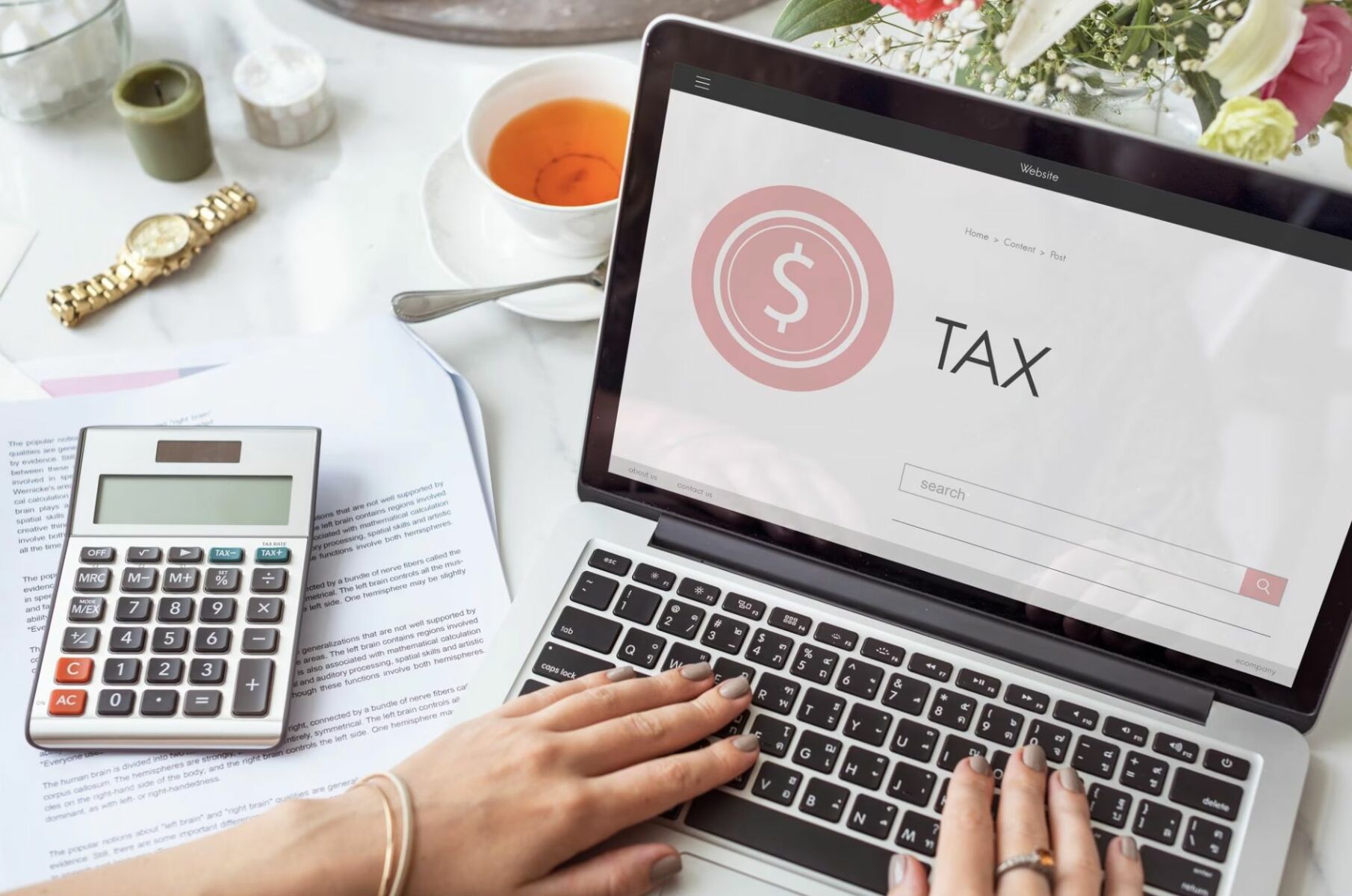Guide to taxes for expats in Thailand

It’s always more fun in Thailand, isn’t it? The tropical weather, the smiling faces, and oh, the food — it’s really a paradise. But here’s the thing: when you decide to call Thailand home, it’s important not to overlook your obligations, including taxes. Understanding it should be a priority as it helps ensure a smooth and lawful stay in your new home. So, here’s what you need to know about your tax responsibility as an expat living in Thailand.
Do expats need to pay taxes in Thailand?

Everyone living in Thailand, regardless of their status, pays some form of tax. The most prominent is VAT (value-added tax), at a rate of 7% and applied to most products and services in the country. Taxes can also be hidden in the costs of products and services. For example, if you own a condo or a car in the country, you’d be liable for property tax and car tax respectively.
Apart from these taxes, one of the main taxes foreigners will encounter in Thailand is personal income tax. Yep, Thailand is not a tax haven. Therefore, you need to make sure to file your taxes on liable earnings to avoid any legal issues while living in the country.
Tax residents and non-tax residents in Thailand
Before diving into the details of how taxation in Thailand affects you, it’s important to determine if you classify as a tax resident in Thailand. For taxation purposes, expats in the country are divided into two groups: tax residents and non-tax residents
A tax resident is someone who spends at least 180 days in a calendar year living in Thailand. As a tax resident, you need to pay taxes on your income earned in Thailand. Additionally, a fraction of any income you earn abroad and bring into Thailand also becomes taxable. However, you don’t have to pay tax for any income you earn during the year that remains in a bank account outside of Thailand. To put it simply, if you want to avoid paying tax on income earned overseas, leave it in a foreign bank account and don’t bring it into Thailand until the following calendar year.
Keep in mind that in order to legally be deemed a tax resident in Thailand, you must obtain a Thailand tax ID from the local Revenue Department. Your employer should help you with the process if you’re employed within Thailand.
Non-tax residents, on the other hand, are anyone who lives in Thailand for less than 180 days. If you’re a non-tax resident, you’re solely taxed on income that is earned within Thailand. Therefore, any income from foreign sources is not subject to Thai tax.
What are the taxes expats need to pay in Thailand?
Personal income tax

As explained above, personal income tax is one of the main taxes you’ll have to pay as a foreigner living in Thailand. You need to pay personal income tax once your annual earnings exceed 150,000 THB after tax deductions. Those making less are exempt from this tax.
Thailand has a progressive tax structure in place. This means that as your income increases, so too will your tax rate. Currently, the maximum tax rate is 35% for those who earn over 4,000,000 THB per year.
Here are the personal income tax rates in Thailand:
- Less than 150,000 THB: 0%
- 150,000 – 300,000 THB: 5%
- 300,000 – 500,000 THB: 10%
- 500,000 – 750,000 THB: 15%
- 750,000 – 1,000,000 THB: 20%
- 1,000,000 – 2,000,000 THB: 25%
- 2,000,000 – 4,000,000 THB: 30%
- Over 4,000,000 THB: 35%
What about other income aside from employment?
If you earn money in Thailand in ways other than your job, you’ll likely have to pay tax on it. This could be income from investments, dividends, interest, capital gains, or money you get from renting out property.
The tax you pay on dividends is 10%,12.50% on rent, and 15% on bonds. Whether or not you’ll have to pay extra income tax depends on what kind of income it is.
For example, if you’re renting out a condo, you have to pay a 12.5% tax on the money you get each year from rent. You may also have to pay extra income tax on this rental money. This can be anywhere from nothing at all up to 35%, depending on how much you earn.
On the other hand, if you earn money from dividends and bonds, you only need to pay tax at either 10% or 15%. This money isn’t hit with any extra income tax, unlike the rental income.
Do you need to pay taxes for income earned outside of Thailand?
As explained before, whether or not your foreign-earned income is taxed in Thailand depends on your tax status and the timing of transferring this income into the country. If you’re a non-tax resident, your income earned won’t be subject to tax. However, bringing your foreign-earned income into Thailand within the same calendar year will require you to pay tax on it.
For example, let’s say you earn money overseas in 2023. If you transfer it to Thailand within the same year, you need to pay taxes on this income. Conversely, if you keep the money abroad and only transfer it to Thailand from 2024 onwards, then these earnings will not be subject to Thai income tax.
How do you file your personal income tax in Thailand?
When it comes to filing your personal income tax in Thailand, the tax year runs from 1 January to 31 December. Individuals are required to file for their previous year’s earnings, with the process starting on 1 January and closing by 31 March every year.
The Thai Revenue Department has made tax filing more user-friendly through an online E-Filing system. However, please note that the website is exclusively in Thai language. Therefore, if you can’t speak Thai, seeking assistance from colleagues or tax professionals can be a good idea. If you’re employed by a Thai company, you can usually expect your employer to offer help with the process.
The tax refund processing time can vary. It could be as quick as one or two weeks if filed early in the year, or take a couple of months if filed towards the end of March.
In some cases, the Thai Revenue Department might ask for additional documents once you’ve filed your taxes. These can be uploaded directly through the system. The E-Filing website allows you to monitor your tax filing status. It’s important to keep a copy of your tax filing for future reference, especially for tasks like renewing your work permit.
On a final note, mid-year tax returns are required by 30 September for those with certain types of incomes, such as advertising fees or rental earnings. To ensure correctness in your tax filing and to avoid any penalties, consultation with a certified accountant is always advised.
Other taxes

In addition to personal income tax, here are the taxes you’ll encounter in Thailand:
Property taxes
If you’re thinking about buying a property in Thailand, there are several taxes you need to pay. These include a 3.3% specific business tax (SBT) on the value of the property, a 2% transfer fee, and a 1% withholding tax. You may also need to pay a 0.5% stamp duty if you aren’t subject to the business tax.
Sales taxes
There is a VAT of 7% on products and services you buy in Thailand. This tax is usually added to the bill at restaurants and shops. However, some places may include it in the price. Remember, this VAT is not the same as any service charges or additional taxes you might pay in places aimed at tourists and foreigners.
Inheritance tax
If you’re going to inherit something in Thailand, you’ll have to pay a tax on it. If you’re the son, daughter, or parent of the person who’s passed away, you pay 5% of what you inherit. For others, the tax is 10%.
Capital gains and company taxes
There’s no specific tax for capital gains in Thailand. If you make capital gains outside of Thailand, you won’t be taxed. For those made inside Thailand, this is seen as normal income.
If you have a business in Thailand, you’ll need to pay tax on 20% of the net profits. However, this may depend on what kind of business you have, its size, and its legal standing in Thailand. For example, a small company earning less than 3,000,000 THB only pays 15% tax.
How do withholding taxes in Thailand work?

Withholding tax in Thailand functions as a system where either your employer, the person paying you, or your financial institution deducts a percentage of your income from each of your pay cheques. This deducted amount is then submitted directly to the Revenue Department.
If it’s employment income, the rate of withholding tax is calculated based on your annual income following the progressive tax table mentioned earlier. Ultimately, the total tax due at the end of the year is divided by the number of payments you receive annually – for instance, 12 if you’re paid monthly. This then reflects the amount deducted as tax per paycheck.
Here are the common withholding tax deduction rates.
- Employment taxes range from 0-35%
- Rent and prizes at 5%
- Non-life insurance premiums at 1%
- Service fee at 3%
- Advertising fee at 2%
- Dividends at 10%
- Interest at 1%
- Royalties at 3%.
The rate at which withholding tax is charged may be reduced or even dropped. This is possible if a Double Taxation Agreement (“DTA”) exists between Thailand and your tax-resident country or if specific Thai laws such as the Investment Promotion Act come into play.
As an expat in Thailand, tax commitments can seem daunting at first, but understanding the lay of the land (or tax code) is an important step in making your life in Thailand a stress-free one.
For retirees in Thailand, check out our guide on income tax law for retirees in Thailand.
Latest Thailand News
Follow The Thaiger on Google News:


























